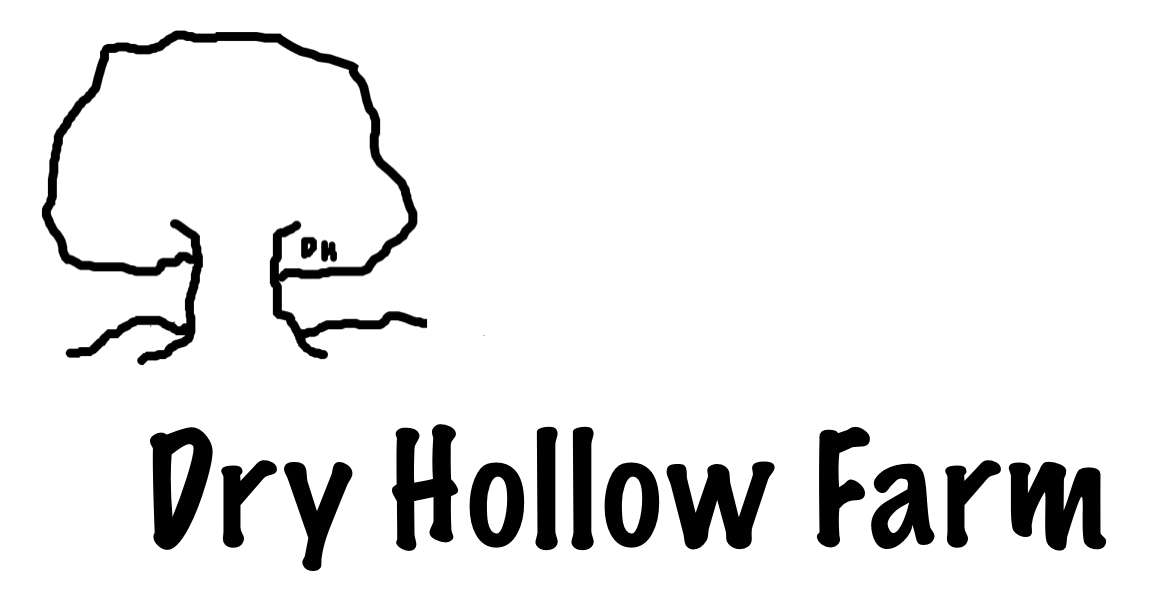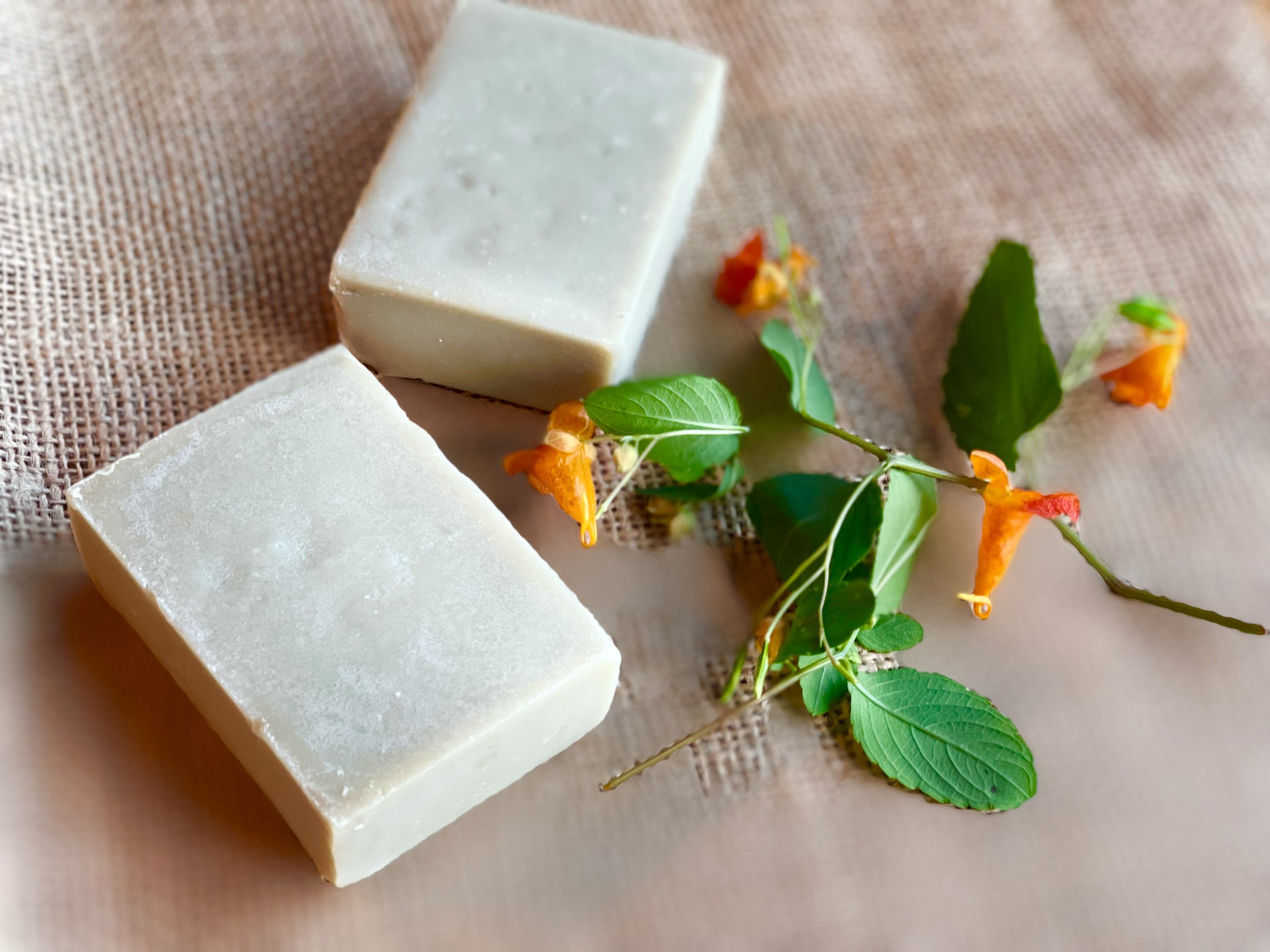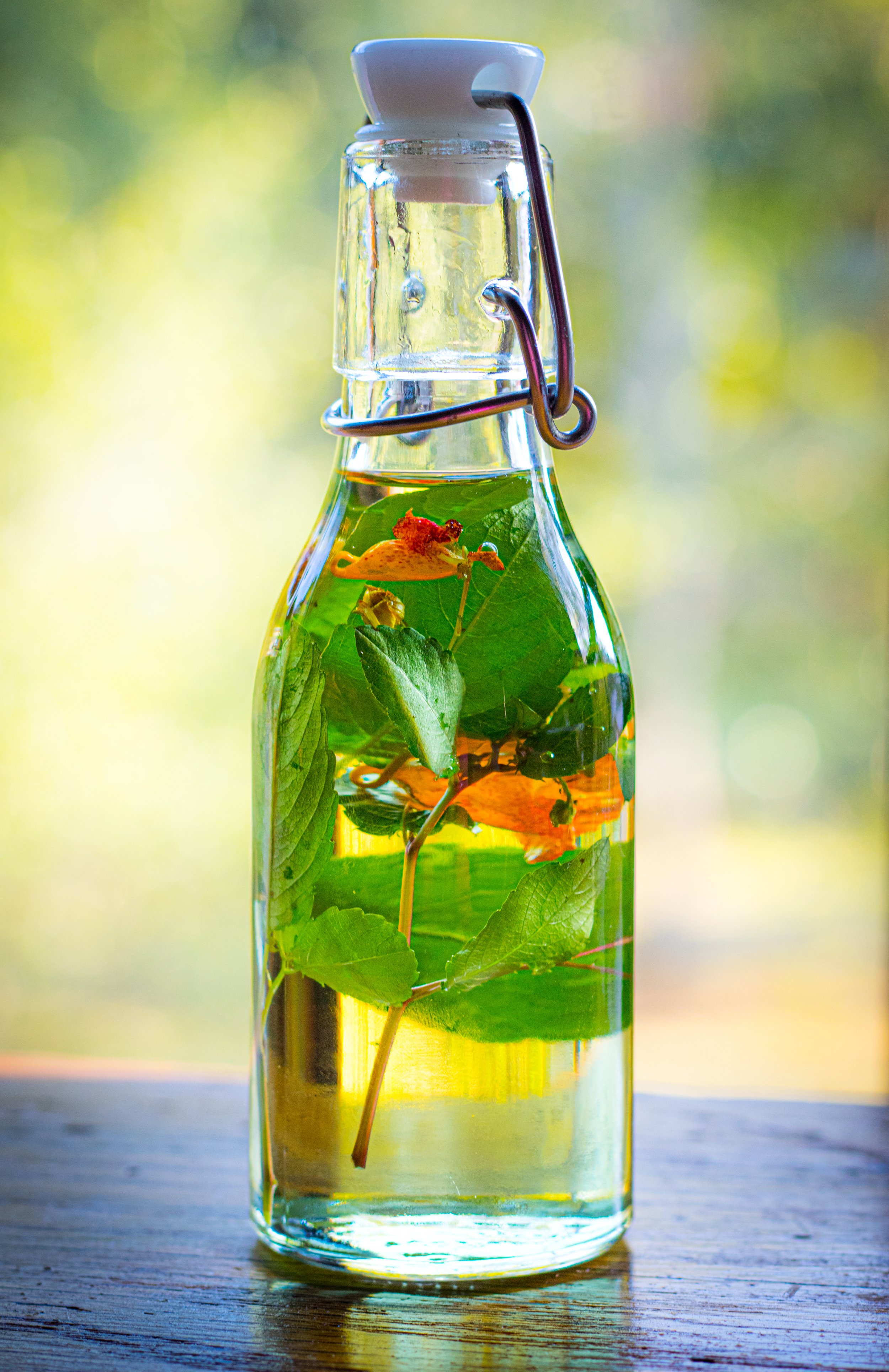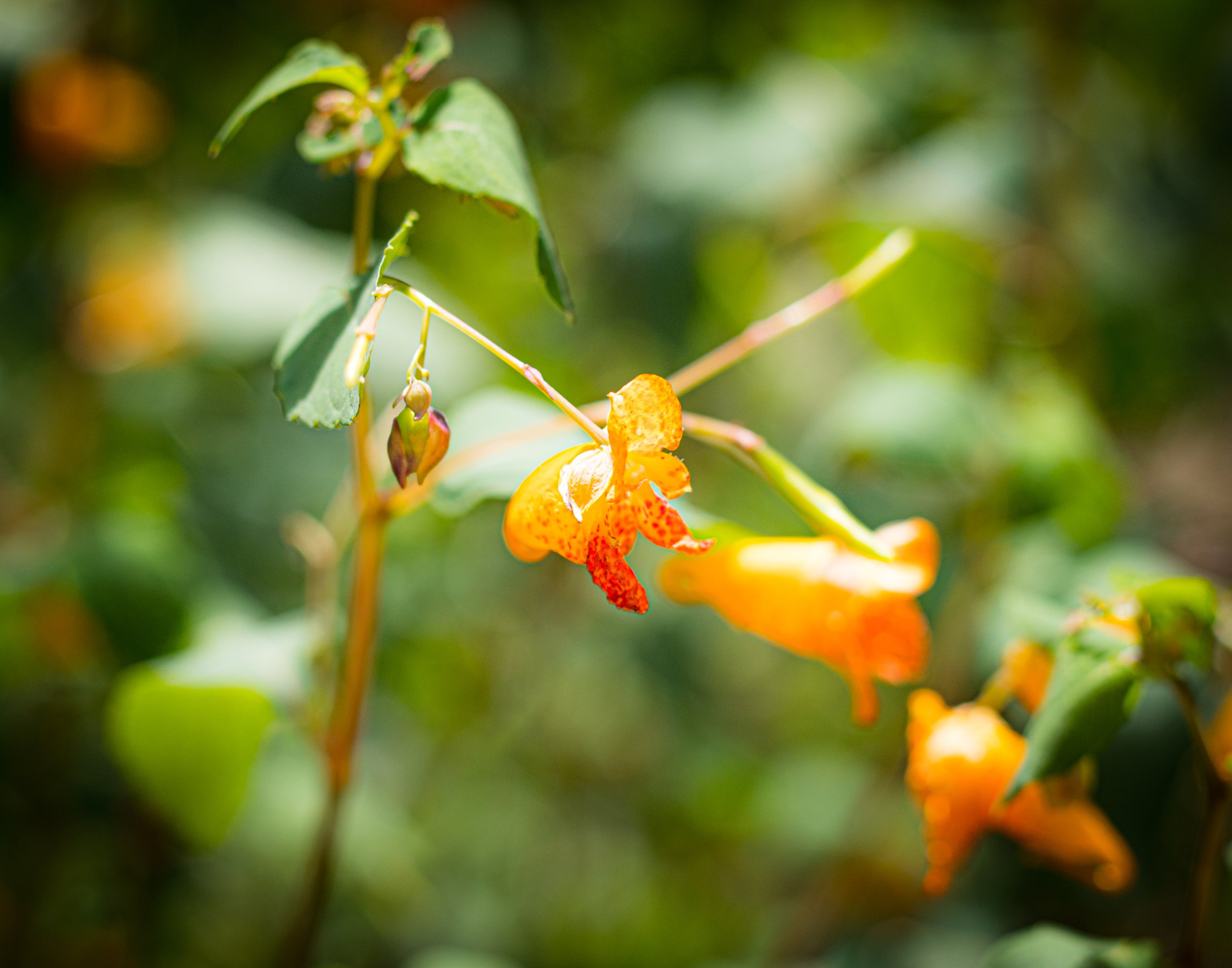The Value of Jewelweed
Every spring we anxiously await the greening of Dry Hollow Farm. Trees, grass, shrubs, garden plants, flowers - it seems as if overnight an explosion of green emerges to replace the browns and grays of winter. Growth is rapid, and we soon find ourselves mowing, pulling weeds, and trimming shrubs. As daylight hours lengthen, so do our outdoor work hours and exposure to some not-so-friendly plants.
Our spring and early summer chores expose us to poison ivy. Usually we never realize we’ve touched the noxious weed until the next day when an itchy rash appears across ankles, elbows, and fingers. Even the thought of poison ivy as I type this blog makes my skin begin to itch.
For most of my life, I have been highly susceptible to poison ivy exposure. Although science says plant oils must come in contact with my skin, I’m convinced simply standing close enough to breathe the stuff causes my break out. I’ve spent evenings dabbing the seeping rash with cotton balls soaked in bleach to stop the insane itching. I’ve bought calamine lotion by the quart. Nothing helped.
Until I discovered two remedies …
First, when we began crafting goat milk soap ten years ago, I quickly discovered one of its skin-healthy benefits - treating poison ivy rashes, tick bits, chigger bites, and all other itchy skin conditions caused by exposure to our summer farm environment. Our goat milk soaps begin the healing process within twelve hours of the emergence of itchy skin and within a day or two, the spots are drying and healing.
The natural world also offers a quick poison ivy remedy - Jewelweed. Ask any long-term resident of western Tennessee and they will immediately point you to this natural-occurring herb that is prevalent along field edges, ditches, and treelines. Pick the leaves and place them on top of the itchy poison ivy rash (you may need a little water to help them stick), or pluck a stalk and spread the oozing mucus from the cut end as a healing salve.
The effect is almost immediate for itch relief, and a few hours to begin drying the rash.
At Dry Hollow Farm, we harvest Jewelweed for our herbal salves and goat milk soaps. We infuse Jewelweed in olive and sunflower oil for these products.
Jewelweed creates a delicate orange flower, and I transplanted a few of these native plants to the flower bed alongside one of our AirBnb cabins. It only took one growing season for me to understand why this plant is named Jewel”weed.” The plant’s spread was explosive, and within two years, I found myself uprooting hundreds of upstarts in order to maintain space of other flowering plant growth!
Sometimes, we only have ourselves to blame …
Dr. Kathryn Bush owns and operates Dry Hollow Farm, a working goat farm in Huntingdon, Tennessee. Together with her husband, Russell, she creates skincare products from their fresh goat milk, grows organic herbs, welcomes visitors to their two cabins on the farm (available for stays through Airbnb), keeps the farm’s on-site soap shop stocked with their handcrafted products, and enjoys working the farm in company with their Great Pyrenees dogs (who work hard guarding the animals). Check out their natural products featuring farm-grown ingredients here, and sign up for the Dry Hollow Farm newsletter to stay in touch and be the first to hear about farm news, events, and new products.



